Understanding shapes Normal Worksheets for Ages 4-9
5 filtered results
-
From - To
Discover our "Understanding Shapes Normal Worksheets" tailored for children aged 4-9! These engaging, printable worksheets are designed to help young learners grasp essential shapes and their characteristics through fun activities. With a focus on interactive learning, students will explore circles, squares, triangles, and more, enhancing their recognition skills while stimulating creativity. Ideal for home or classroom use, these resources promote critical thinking and inspire meaningful discussions about shapes in everyday life. Support your child's early math development with our easy-to-follow worksheets that make learning both enjoyable and effective. Start fostering a deep understanding of shapes today!
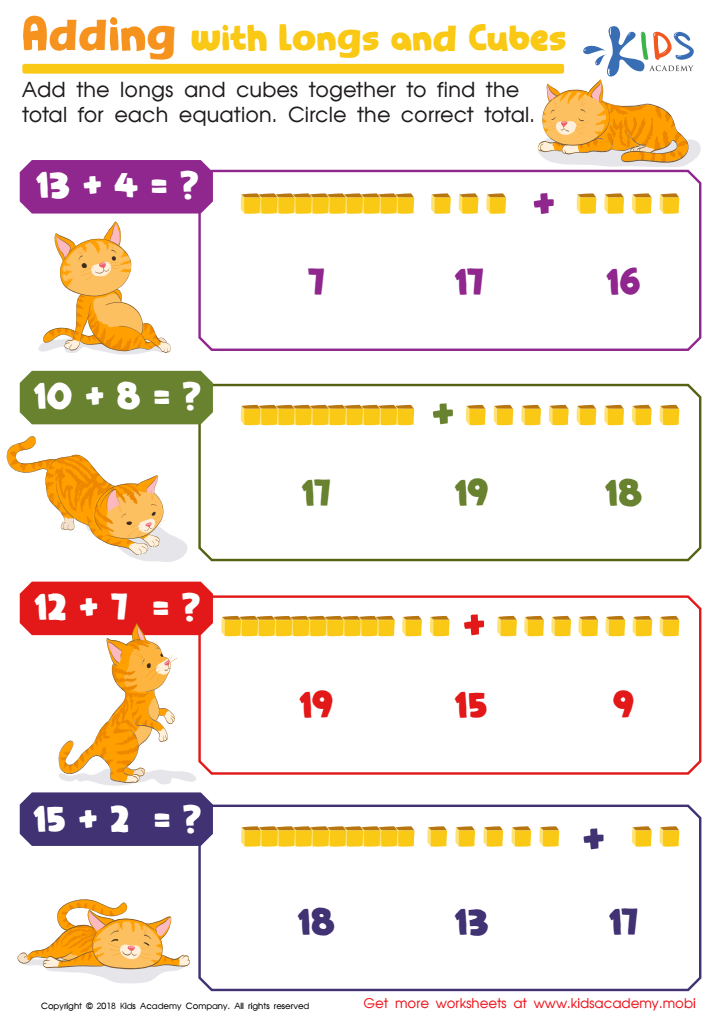

Adding With Longs and Cubes Worksheet
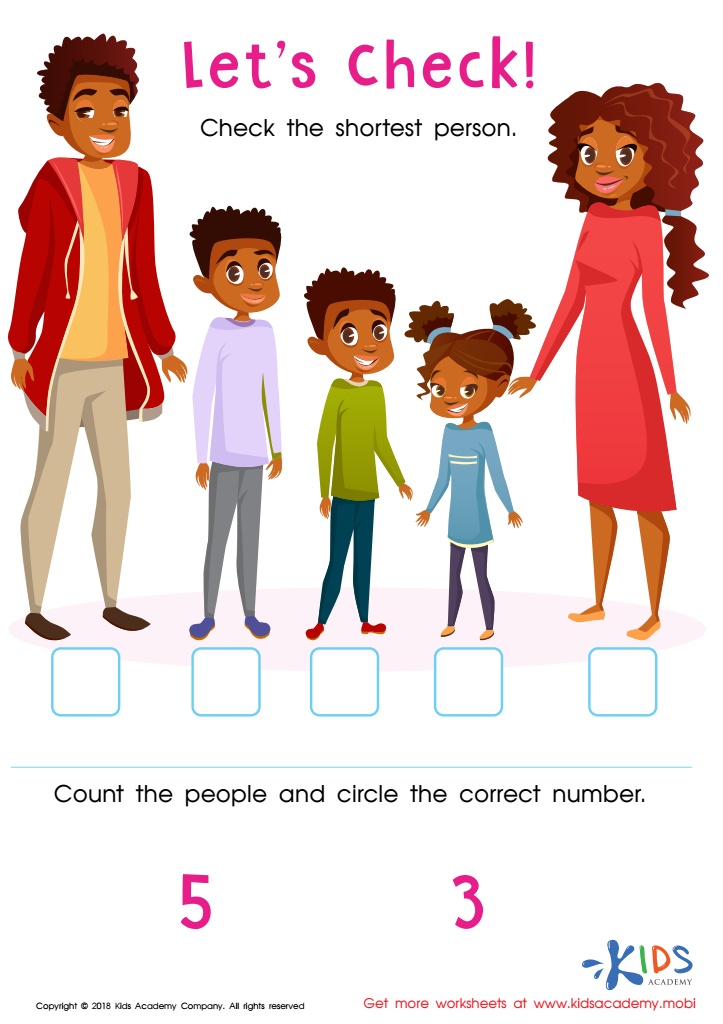

Let's Check! Assessment Worksheet
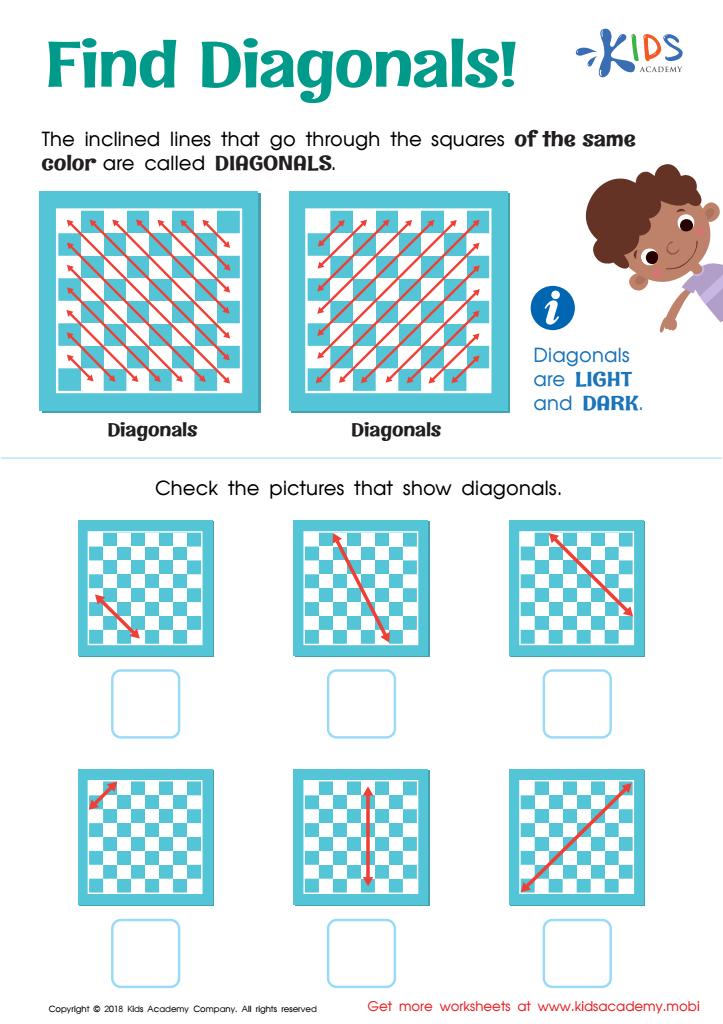

Find Diagonals Worksheet
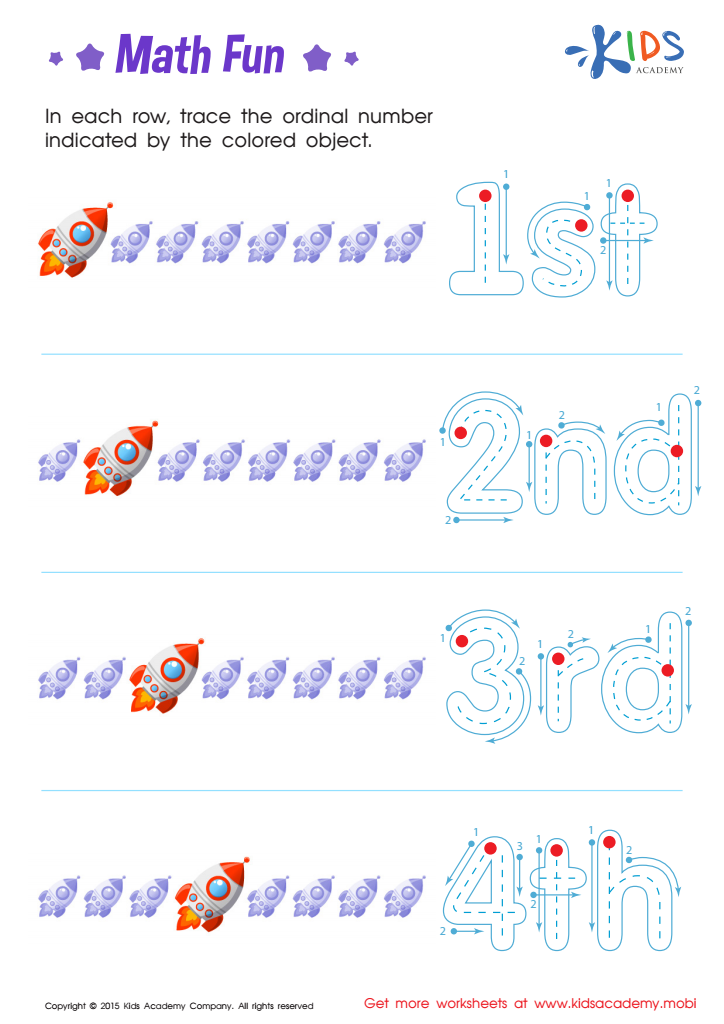

Ordinal Numbers: Math Fun Worksheet
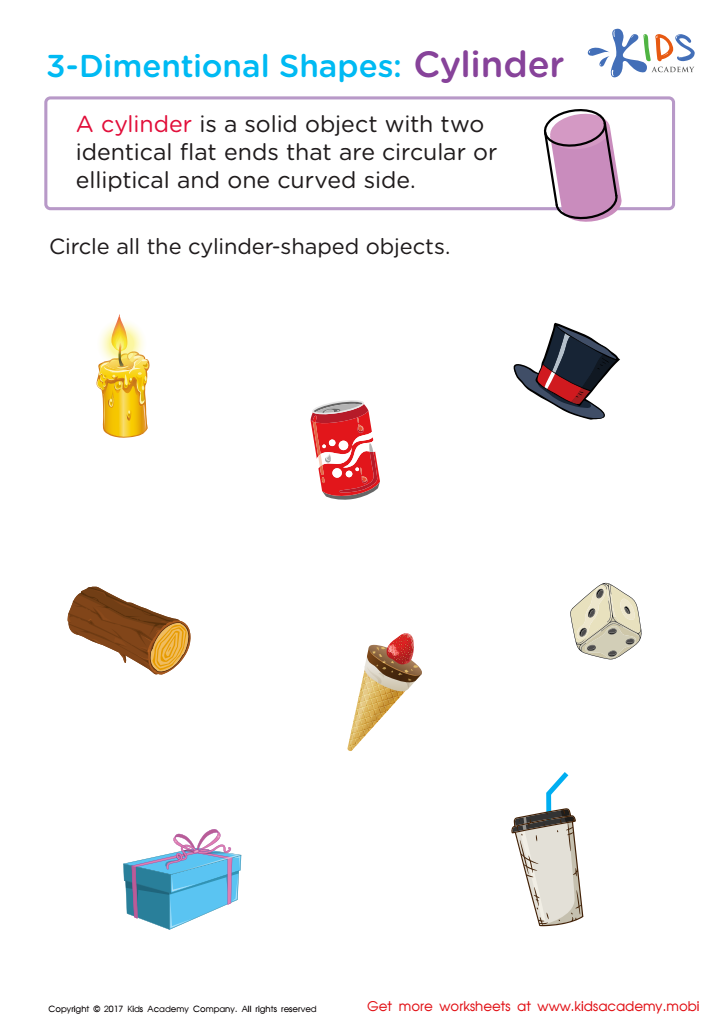

Three–Dimensional Shapes: Cylinder Worksheet
Understanding shapes is fundamental for children aged 4-9 as it lays the groundwork for their overall cognitive development and mathematical understanding. Recognizing and manipulating shapes sharpens spatial awareness, which is crucial for skills such as reading maps, understanding architecture, and even driving in later life.
For parents and teachers, fostering a strong grasp of shapes in young learners facilitates their ability to classify, compare, and analyze objects in their environment, reinforcing critical thinking skills. Engaging with shapes also supports language development; children learn to articulate characteristics, relationships, and concepts such as symmetry and angles.
Moreover, these skills are essential as they feed into more complex mathematical concepts, including geometry, measurement, and problem-solving, encountered in later education. By introducing fun, age-appropriate activities involving shapes—such as puzzles, drawing, and interactive games—parents and teachers turn learning into an enjoyable process, promoting curiosity and motivation.
In essence, understanding shapes is not merely a foundational math skill but a stepping stone to broader cognitive, social, and real-world competencies, making it a vital focus in early childhood education. Ignoring this stage could lead to gaps in knowledge that may hinder future academic success.
 Assign to My Students
Assign to My Students




















